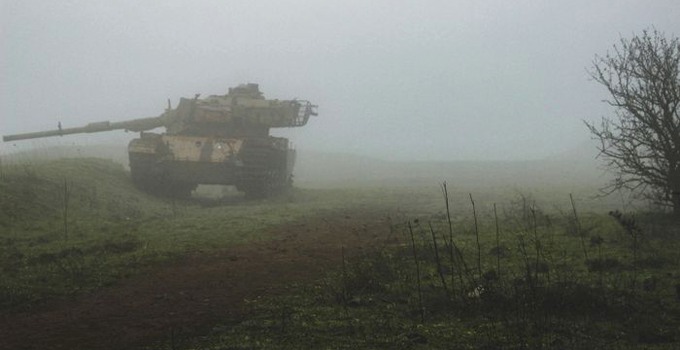
Foto: Unsplash.
How are Russia's neighboring countries affected by hybrid warfare?
The anthology Russian Warfare and Influence: States in the Intersection Between East and West focuses on how the Baltic states, Belarus, Serbia, and Georgia are affected by their position in Russia's shadow and the hybrid warfare they are subjected to.
Since Russia’s full-scale invasion of Ukraine, global attention has been directed both at Russia itself and at how Ukraine and the Western world are dealing with the Russian threat. However, according to Niklas Nilsson, Associate Professor and Senior Lecturer at the Department of War Studies, several states near Russia have been largely absent from this discussion.
Together with Mikael Weissmann, Senior Lecturer and Associate Professor at the Department of Systems Science for Defence and Security, Nilsson decided to compile an anthology focusing on the countries at the intersection between East and West: Belarus, the Baltic states, Serbia, and Georgia. The result is the book Russian Warfare and Influence: States in the Intersection Between East and West.
"The contributors are either researches from these countries or external experts with deep insight gained from closely following developments over a long period. It was important for us to include the local perspective," says Nilsson.
Significant differences between the countries
Otherwise, these countries are often discussed as if they are passively subjected to Russia's actions, Nilsson argues.
"We wanted to include the perspective of agency. These are, to varying degrees, independent sovereign states with their own agendas, which they act upon in their efforts to manage Russia."
Russia's agenda towards the countries in the anthology varies significantly depending on the specific contexts and what Russia is capable of doing in each case, according to Nilsson. For example, Belarus is highly dependent on Russia, whereas the Baltic states hold a very different position as members of the EU and NATO. In the Baltics, efforts include influencing the Russian-speaking minorities within their populations.
"Then there’s Serbia, where Russian policy essentially provides the Serbian government with an opportunity to balance between the EU and Russia, sometimes even playing these actors against each other. In Serbia, Russian influence is not necessarily a negative thing for the regime."
Common themes in Russian influence tactics
Despite these differences, there are common patterns in Russia’s influence efforts: aligning with local political elites to make them dependent on Russian support and manipulating the information environment in ways that benefit Russia.
"Russia promotes various narratives aimed at undermining Western institutions and casting doubt on the activities of the EU and NATO. In recent years, much of this has focused on presenting a Russian version of events in Ukraine," Nilsson explains.
The book’s main takeaway is that there is substantial variation in Russia's actions and in how the neighbouring states have chosen to respond, Nilsson notes.
"Both the conditions and the level of interest among the targeted states vary greatly. This broadens the perspective compared to discussions about hybrid threats and influence, which almost exclusively focus on established liberal democracies in Western Europe."
Expect more desperate Russian actions
Another conclusion, according to Nilsson, is that Russia is now focusing its military resources on the war in Ukraine while still striving to remain an international actor with ambitions towards its neighbouring countries. This may lead to increased reliance on other means to maintain control and influence.
"Influence campaigns and even acts of sabotage are becoming increasingly extensive. This is a pattern we are seeing in multiple places. We can expect more aggressive and desperate actions from Russia the longer the war continues," he concludes.
Publication
The anthology Russian Warfare and Influence: States in the Intersection Between East and West is published at Bloomsbury Open Access, Politics & International Relations 2024
Editors: Niklas Nilsson and Mikael Weissmann.
Page information
- By:
- External Relations and Communications Office/freelance writer Emmeli Nilsson
- Published:
- 2024-12-13
- Last updated:
- 2024-12-13
